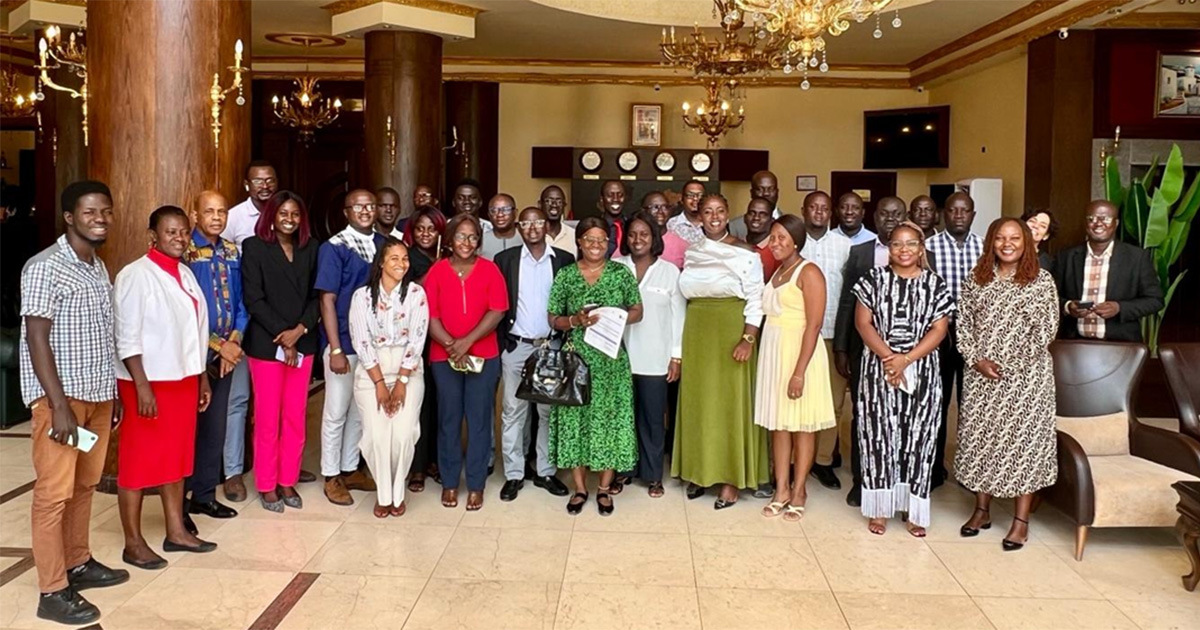From Commitment to Action
From 17 to 19 June 2025, the Centre for Human Rights (CHR), Faculty of Law, University of Pretoria, in collaboration with government officials and civil society representatives in Guinea-Bissau, hosted a workshop in Bissau to strengthen state reporting under the African Charter on Human and Peoples’ Rights and the Protocol on the Rights of Women in Africa (Maputo Protocol). The workshop marked a critical step as Guinea-Bissau prepares to submit its first state report on both instruments, demonstrating its growing commitment to advancing human rights and gender equality.
Guinea-Bissau ratified the African Charter in 1986 and the Maputo Protocol in 2008. While constitutional guarantees such as Articles 24 and 25 affirm gender equality, outdated legal frameworks and customary practices continue to undermine women’s rights, particularly in family law, land rights and protection from harmful practices.
Persistent Discrimination in Law and Practice
One of the most significant barriers to gender equality in Guinea-Bissau lies in the 1966 Civil Code and Family Code, inherited from the Portuguese colonial era. These laws remain largely unreformed and conflict with both the Constitution and international human rights standards.
- Marital Power and Asset Control: Article 1674 of the Civil Code designates the husband as the “head of the family”, granting him unilateral authority over marital decisions. Under Article 1678(1), he is also the administrator of the couple’s property, including assets legally belonging to the wife. This structure denies women financial independence and legal agency.
- Land and Inheritance Rights: Although Guinea-Bissau’s Land Law theoretically guarantees non-discriminatory access to land, in practice, customary systems place land ownership in the hands of male elders or family heads. According to the 2014 National Policy for Gender Equality and Equity (PNIEG), women often access land only through male relatives and risk eviction upon the death of a husband or father. Levirate marriage remains common in some areas, forcing widows to marry male in-laws to retain property or housing.
- Marriage and Child Custody: The 2011 Reproductive Health Act raised the minimum age of marriage to 18. However, child marriage and polygamy remain prevalent, especially in rural areas where customary norms prevail. Although a new Child Protection Code, awaiting parliamentary approval, aims to legally standardise 18 as the minimum age, enforcement challenges persist.

- Divorce and Custody: a 2019 UNICEF Situation Analysis reiterated that the patriarchal paradigm is adopted by the majority of traditional Guinean societies. Generally speaking, a woman who files for divorce runs the danger of losing custody of her children. In certain ethnic groups with customary law, married women are not allowed to file for divorce or separation. Women are only permitted to have custody of children up until the age of seven, at which point the father obtains custody.
- Violence and Social Norms: Gender-based violence remains widespread, with cultural acceptance among both men and women. A national study revealed that 41.8% of women aged 15–49 believe a husband is justified in beating his wife under certain conditions, such as refusing sex or burning food. Despite the adoption of Law No. 14/2011 banning female genital mutilation (FGM), enforcement is inconsistent, and many cases of domestic violence go unreported or unresolved.


Promising Signs of Legal Reform
Encouragingly, Guinea-Bissau is in the process of reforming its Constitution. The draft Constitution includes:
- Article 13, which mandates the state to promote substantive equality, especially by addressing discrimination against women;
- Article 20, which prohibits discrimination in accessing decision-making bodies;
- Articles 67(5) and 87(4), which guarantee special protections for women during pregnancy and postpartum, including paid maternity leave.
These reforms, if adopted and implemented, would significantly strengthen the legal foundation for women’s rights.
Charting the Way Forward
To meet its obligations under the African Charter and Maputo Protocol and realise gender equality in practice, Guinea-Bissau must take the following steps:
- Repeal discriminatory legal provisions in the Civil and Family Codes, particularly those governing marital power, property rights and inheritance.
- Harmonise statutory and customary laws, ensuring constitutional and treaty protections prevail where conflicts arise.
- Enhance awareness and capacity-building among judges, lawyers and traditional leaders to uphold women’s rights.
- Promote legal literacy among women and girls, particularly in rural areas, to empower them to claim their rights.
- Adopt and enforce reforms like the new Child Protection Code and constitutional amendments ensuring substantive equality.
Looking Ahead
Guinea-Bissau’s commitment to submit its first report to the African Commission on Human and Peoples’ Rights by October 2025 is a critical milestone. The workshop hosted by CHR and national stakeholders is an important part of that journey, laying the groundwork for legal reform, institutional alignment and public accountability.
Realising gender justice in Guinea-Bissau demands more than reporting. It requires deep structural change, legally, culturally and institutionally. With political will, community engagement and international support, meaningful progress is not only possible but imperative.
